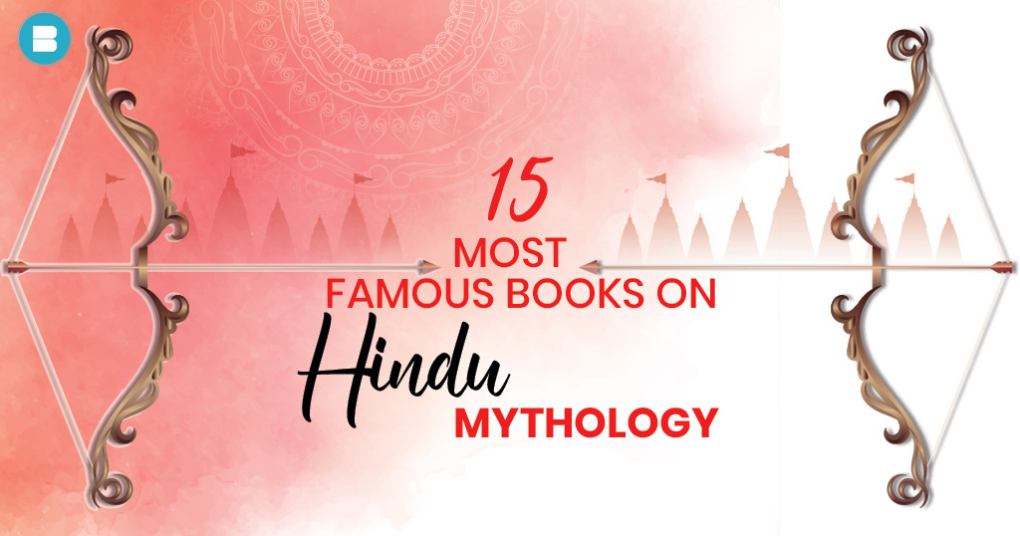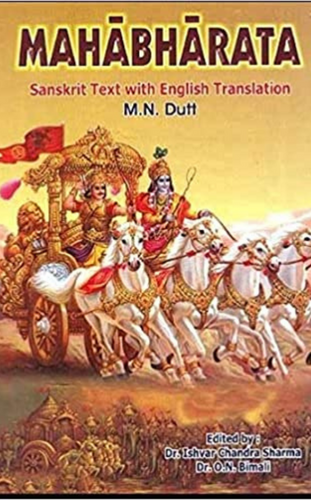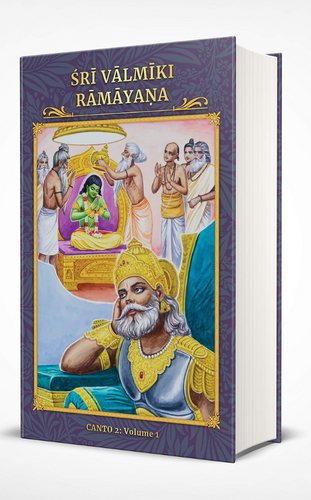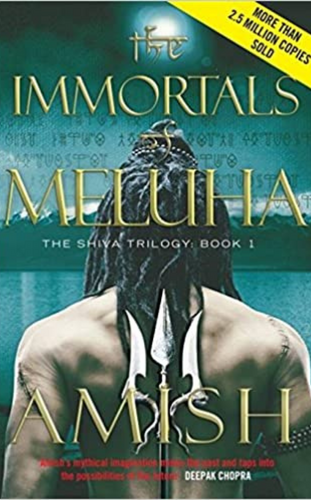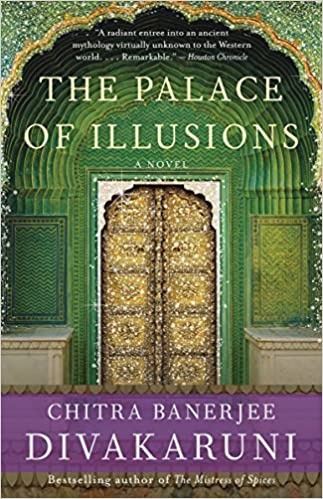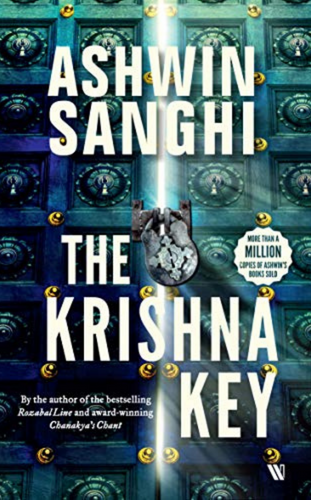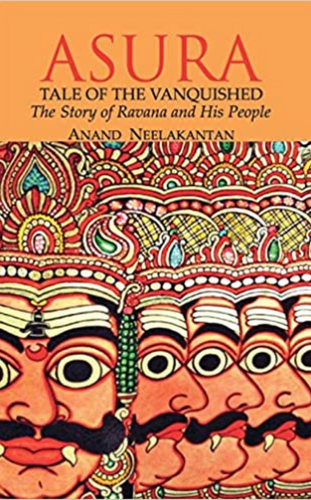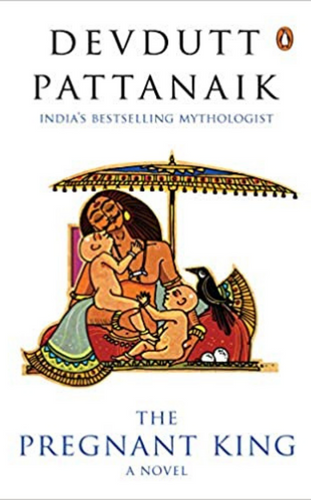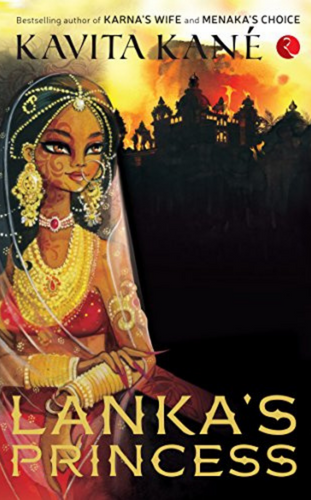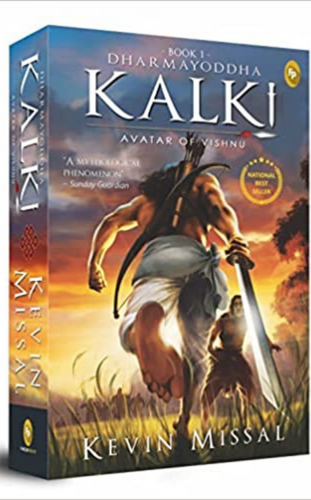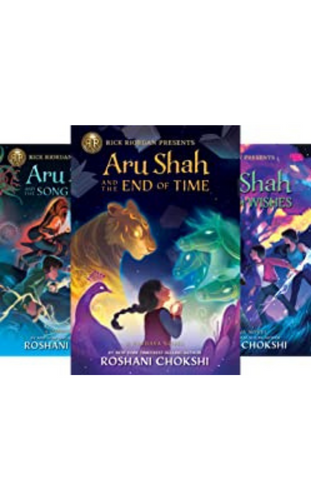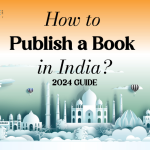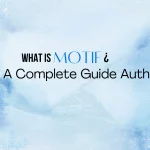Learn & Note down the list for best books on Hindu Mythology. Mythologies have been a huge part of our lives. Ever since we were kids, our parents told us stories about God and Goddesses and how beautiful their world was… As a reader, it is a mystical world that attracts our attention – the world, the characters, the powers, the emotion, and the lessons.
Read: Who is Annie Ernaux? Things to know about Nobel Prize Winner
Here is a list of 10 books on Indian/Hindu Mythology that will blow your mind –
- Mahabharata by Vyasa
- Ramayana by Valmiki
- The Immortals of Meluha by Amish Tripathi
- The Palace of Illusions by Chitra Banerjee Divakaruni
- The Krishna Key by Ashwin Sanghi
- Asura : Tale of the Vanquished – The Story of Ravana and His People by Anand Neelakantan
- The Pregnant King by Devdutt Pattanaik
- Lanka’s Princess by Kavita Kane
- Dharmyoddha Kalki by Kevin Missal
- The Pandava Series by Roshani Chokshi
The Mahabharata is one of the two major Sanskrit epics of ancient India, the other being the Ramayana. It describes the Kurukshetra War between two groups of cousins, as well as the destinies of the Kaurava and Pava princes and their successors. It also includes philosophical and devotional material, such as a study of the four “life aims,” or purusartha. The Bhagavad Gita, the narrative of Damayanti, the story of Shakuntala, the story of Pururava and Urvashi, the story of Savitri and Satyavan, the story of Kacha and Devayani, the story of Rishyasringa, and a shortened version of the Ramayana are among the major works and stories in the Mahabharata.
You may also read: Aravind Adiga Books of All Time | BlueRoseOne
You may also like: Top 10 Real life Stories to Read Online
The Immortals of Meluha is Amish Tripathi’s debut novel, as well as the first in the Amishverse and the Shiva Trilogy. The story takes place in Meluha and begins with Shiva’s arrival. The Meluhans regard Shiva as their saviour Neelkanth. Shiva resolves to help the Meluhans fight the Chandravanshis, who have joined forces with a cursed Naga; but, throughout his journey and the ensuing battle, Shiva realises how his decisions reflect who he aspires to be and how they have devastating consequences. “Myths are nothing more than jumbled memories of a true history, buried beneath mountains of earth and ignorance,” Tripathi claims. The novel contains characters from Hindu literature as well as those created by Tripathi; however, the former do not inherit all of their classical features.
You may also read: Top 10 Ebook Selling Platforms for Authors in 2025
You may also like: The Importance of Professional Editing in Self-Publishing
The Krishna Key is the third novel by Indian novelist Ashwin Sanghi, published in 2012. The plot revolves around a history professor who must establish his innocence in the face of a murder charge. Sanghi claimed that he “wanted to write a story in relation with the Mahabharata, but not a retelling of the epic, which has already been done,” and that he “had to be exceedingly cautious in dealing with this matter since we put a premium on personal conviction and religion.” Krishna was chosen as one of the book’s themes because he is a “perfectly grey character.”
You may also like: Savi Sharma Books | India’s Bestselling Inspirational Author
Anand Neelakantan’s first novel is Asura: Tale of the Vanquished. On May 14, 2012, Leadstart Publishing released it. This mythical fiction tells the Ramayana story through the eyes of Ravana and a common Asura, Bhadra. The book seeks to emphasise the vanquished’s voice as opposed to the victor’s narrative of Ramayana that is popularly recognised. It delves into Ravana’s hardships and the events in his life that shaped him into the man he became, attempting to establish a link between the social construct as it may have existed and varied at the time and the well-known incidences detailed in the Ramayana mythology as it is known today.
You may also read: Book Review: Student Politics of IIT Madras by Shushant Jaswal
Devdutt Pattanaik published The Pregnant King in 2008. It tells the story of Yuvanashva, a childless king who takes the magical elixir meant to make his queens pregnant by accident. It is set against the backdrop of the Mahabharata and contains references to people and events from both the Kurukshetra and the Ramayana. The book’s main theme is the tension between desire and social obligation/destiny. It also addresses issues with the concept of gender.
You may also: List of Top 10 Famous Ravinder Singh Books of All Time
Kavita Kane narrates the unseen story of Surpanakha that was the cause of the events that happened in Ramayana. A unique and so significant retelling of the Ramayana written compellingly by one of the very best writers in the Indian mythological fiction genre. Here, one can observe how mythological retellings contribute to the subversion of traditional, largely patriarchal narratives.
You may also like: The Rise of Self-Publishing and What it Means for Authors
The story of Kalki, Vishnu’s eleventh avatar, will captivate you. A legendary flight of fantasy intended to serve as both an escape and a reminder of principles. The plot is interesting, and the characters are well developed enough to keep your interest. Kalki is the narrative of a sheltered youngster who finds himself at the mercy of fate and must fulfil it. This book is a dizzying mix of politics, fantasy, and betrayals. Kevin Missal authored his first book when he was fourteen, and Dharmayoddha Kalki was published when he was twenty one.
You may also like: Stormlight Archive Series Review: Is It Worth Reading?
Roshani Chokshi relates the story of a twelve-year-old Aru Shah, which is similar to but not identical to Rick Riordan’s Percy Jackson. If you wish to introduce your children to Indian mythology books, take advantage of the opportunity that Chokshi offers. Aru’s family runs the Museum of Ancient Indian Art and Culture. However, one terrible day, Aru burns a cursed lamp, triggering a chain of events that wakes up a sleeping monster. She is now on a quest to find the Pandavas’ reincarnations and explore the region of the dead. It is the ideal book for expanding your children’s imagination, as is frequently the case while reading Indian mythology novels.
Now that you have a list of the best mythology books, get ready to dive into these fantasy worlds! These books not only revive the old mythologies and stories that you might have listened to while growing up, but also give a new twist to them.
These intricately made fantastical worlds are the best escape from the real life. So, pick one of these books and disconnect from your worries of the real world.
Publish your book with BlueRoseONE and become a bestselling author. Don’t let your dream of becoming an author fade away, grab the opportunity now and publish your book for free with our online DIY platform – be it fiction, non fiction, poetry or more.
Happy reading!
You may also read: Imposter Syndrome for Authors: Steps to Overcome Imposter Syndrome

